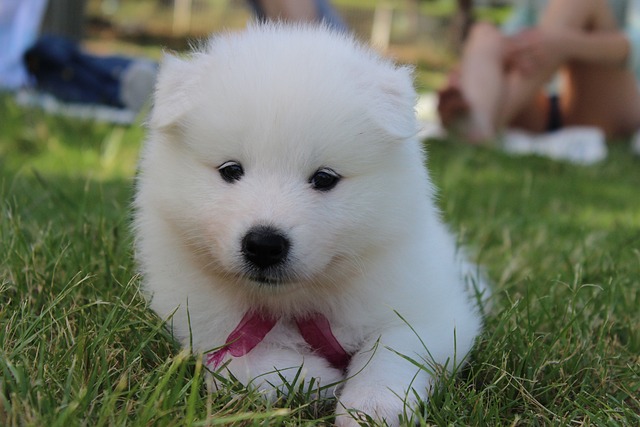
How do i train my dog to be obedient?
Watching your dog dart across the park ignoring your calls isn’t just frustrating—it can put them at risk near busy streets or public spaces.
The cute furry appearance of dogs always melts our hearts easily. When welcoming a puppy, potty training becomes an important task for the owner. Many owners are curious about the easiest age for puppy potty training. In fact, the golden age for potty training is when the puppy is 3 to 6 months old.
The body functions of 3-month-old puppies gradually develop, especially the bladder and nervous system. At this time, they begin to have a certain ability to control excretion. Puppies at this stage are like a pure white paper, full of curiosity about the world, and more likely to accept new rules and instructions. Starting training at this age can help puppies establish conditioned reflexes for defecation faster. For example, when the puppy is taken to a fixed place for defecation by the owner during this period, after repeated repetitions, it will gradually understand the connection between this place and defecation.
As puppies grow to 4 to 5 months old, their learning ability is further enhanced. At this time, puppies have a more acute perception of their owners' voices and behaviors. Owners can use this to help puppies develop good toileting habits through clear and consistent instructions, such as "go to the toilet", combined with fixed toileting locations. In this process, puppies will closely associate the owner's instructions with toileting behaviors. For example, every time the owner takes the puppy to the toilet, the owner uses the same instructions and tone, and the puppy will gradually understand the owner's intentions and defecate as required.

6-month-old puppies are more mature in physical development and their self-control ability has also improved. Based on the training in the previous few months, puppies at this stage can basically defecate stably in a fixed place. Of course, there may be some differences between different breeds of puppies, but in general, at 6 months old, most puppies have been able to master the rules of defecation.
In the process of puppy toilet training, the owner's patience and methods are crucial. To maintain consistency in training, take the puppy to a fixed place to defecate regularly every day, generally after the puppy eats, wakes up, and plays for a while. When the puppy defecates in the right place, give rewards in time, such as delicious snacks, enthusiastic praise and gentle caressing, to reinforce its correct behavior. If the puppy defecates in other places by accident, do not beat or scold it, because this will make the puppy feel scared and confused, which is not conducive to training. Just stop it gently, then clean it up, eliminate the smell, and prevent the puppy from defecating in the same place again.
Every training is a precious moment of emotional communication between the owner and the puppy. The puppy tries to understand the owner's intentions, and the owner guides the puppy to grow with love and patience. When the puppy is finally able to urinate and defecate in a fixed place consciously, the joy and sense of accomplishment are indescribable. This is not only a life skill learned by the puppy, but also the sublimation of trust and tacit understanding between the owner and the puppy.
Puppies are most suitable for toilet training when they are 3 to 6 months old. During this critical period, the owner should seize the opportunity, use scientific methods, give the puppies enough care and guidance, help them develop good toilet habits, let the puppies grow up healthily and happily, and become a well-behaved and lovely member of the family.

Watching your dog dart across the park ignoring your calls isn’t just frustrating—it can put them at risk near busy streets or public spaces.

New puppy owners often find themselves rushing to clean up accidents before they set in, and that’s where puppy pad training becomes a game-changer.

If you've noticed your dog's waistline disappearing and your veterinarian has mentioned those few extra pounds, your first instinct might be to simply reduce the amount of food in their bowl.

Training a dog to use a designated spot indoors isn’t as daunting as many new owners fear, but it does take consistency and an understanding of your pet’s needs.

That moment of dread on a walk is all too familiar for many new dog owners. You see another dog approaching down the sidewalk of your neighborhood

If the sight of another dog on your neighborhood walk makes your heart sink as your own dog erupts into a frenzy of barking and lunging, you're not alone.